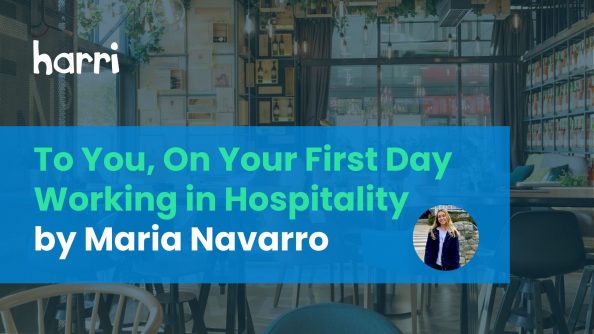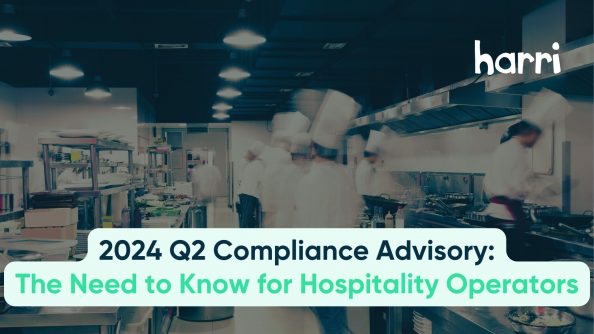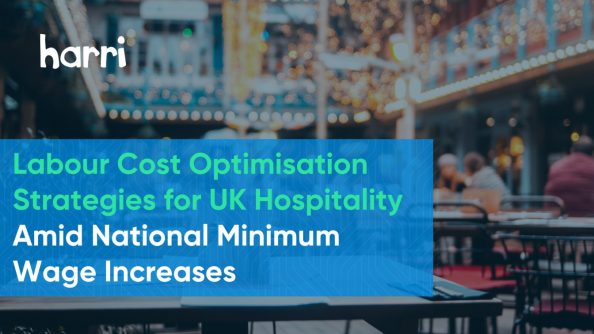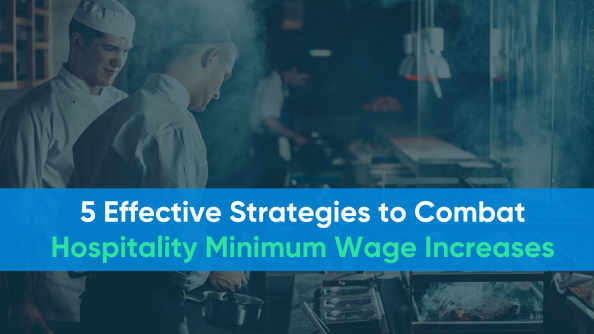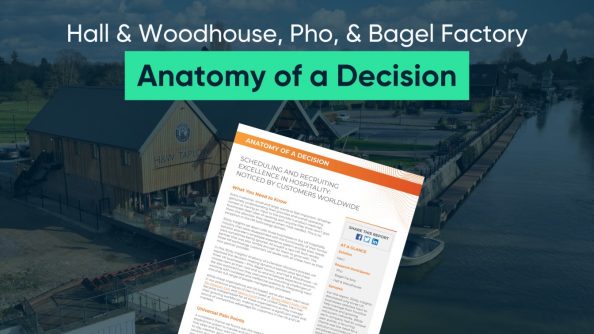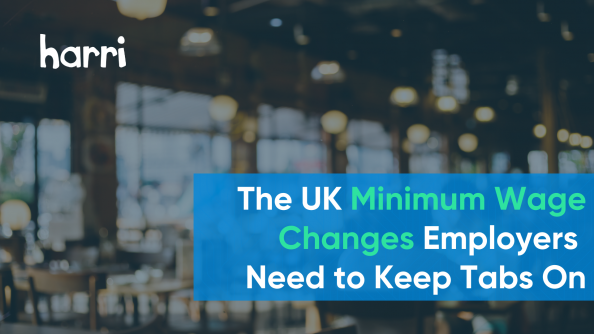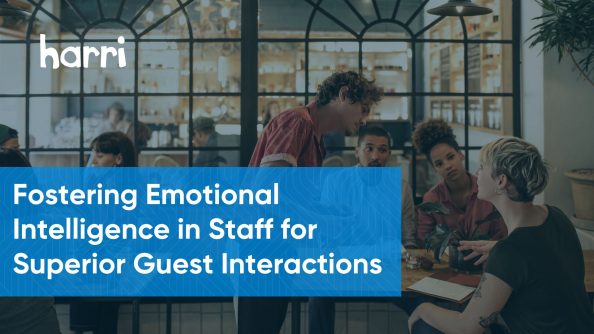Staff Shortages Are Piling on the Pressure But Employers Mustn’t Take Advantage
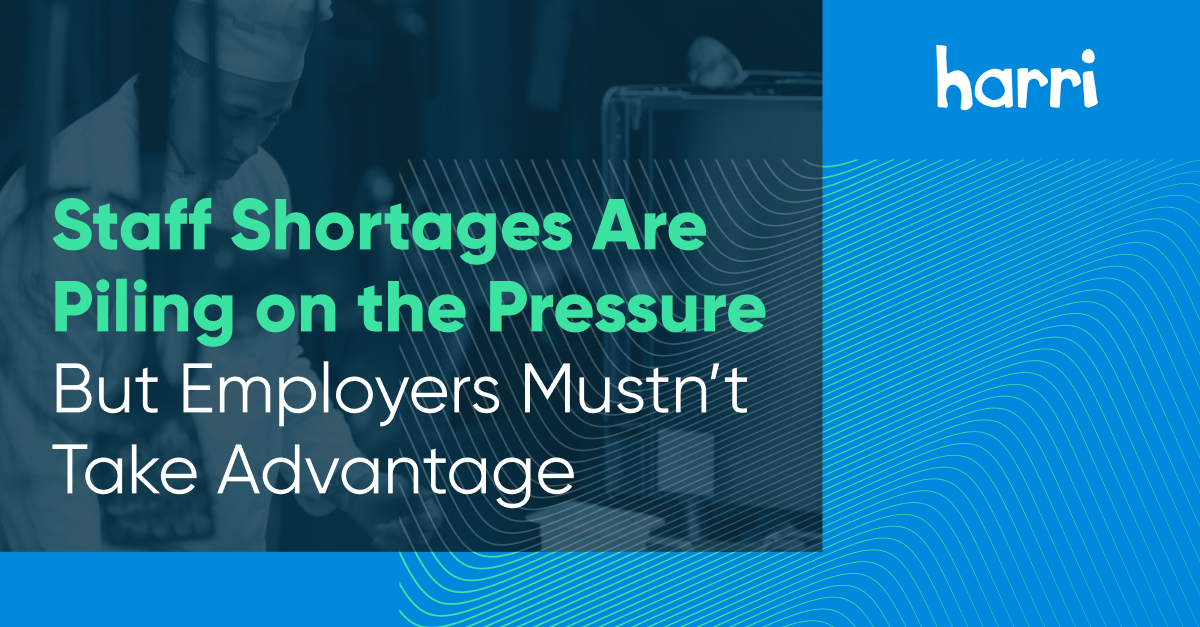
- By Harri Insider Team | May 24, 2022
Life is tough for staff and employers at the moment with so many unfilled vacancies in hospitality. With staff working longer and longer hours to keep businesses going, there’s a danger of losing team members if you’re not careful.
Here we assess the impact on staff of reduced team numbers, and consider what can be done to help ease the pressure…
Working hours are on the up
With operators across hospitality struggling to recruit enough people to fill vacant roles, it’s perhaps not surprising that staff are finding themselves working many extra hours. Hospitality staff are reporting working around six hours a week longer than before the pandemic as businesses try to keep going amid the industry’s biggest ever recruitment crisis.
In food-led businesses, employees are working an average 28 hours a week, compared to around 23 hours in wet-led businesses (the pre-pandemic average was around 19 hours a week). The pressure is being felt most of all in fine-dining restaurants, where employees are being asked to work 40-plus hours a week due to a lack of experienced chefs and front-of-house staff. While many workers will be willing to pick up more than their usual share of shifts to help keep businesses afloat, it’s vital operators ensure they’re properly remunerated else they may well jump ship.
As Tom Ross, managing director of The Pig hotels, said at the Rooms101 hotel conference in March, the days are gone when the hospitality industry can get away with working their staff extra hours without extra pay. Ross told delegates at the event: “Previously people would have a 40-hour contract and yet work 48 hours and it was just accepted. It was all so wishy-washy and that can’t happen in our industry anymore. We need to make sure when we say it’s a 45-hour contract, it is a 45-hour contract, which is why we pay every hour of overtime.”
“By paying that overtime you are paying people the true value of their input. It’s a big commitment but you need to do it.”
Certainly, with so many jobs available and a much reduced talent pool (thanks to the double whammy of Brexit and the pandemic), employees who aren’t getting financially rewarded for their extra input can easily move on.
Getting the balance right
Harri’s recently released report, Transforming the Employee Experience in Hospitality, produced in partnership with CGA, revealed the main priorities of hospitality workers today – and a good work-life balance was right up there.
When asked – as part of CGA’s Working in Hospitality survey – what employees consider before deciding whether to accept a job, pay was top of the list at 63%, followed by flexibility and work-life balance at 49%. The survey also found that hospitality job-seekers look for different qualities in their potential employer, with the most common being honesty (47%), followed by mutual respect (41%) – something that can only be achieved if you pay your staff fairly for the hours they work.
The survey found that there are lots of reasons why employees leave hospitality, with unsociable hours (54%), insufficient pay (47%) and difficult customers (42%) among the most common. Most pertinently, around half (49%) of those surveyed said that staff shortages themselves are causing more people to leave, because they are now facing an increased workload.
It’s true to say that hospitality has become trapped in a vicious circle of shortages, and operators need to do everything in their power not to lose the people they’ve got.
Harri can help
While you can’t magic up some extra pairs of hands to help ease your staff’s workload, you can make sure they’re paid fairly for the number of hours they work, and perhaps show your appreciation in other ways such as meals or overnight stays. You can also help relieve some of the pressure by investing in technology solutions that will make your staff’s lives easier.
Our report showed that three in ten workers think the technology available to staff – like digital clocking-in and out – is not at all advanced, and 88% would like to see technology in the hospitality sector improve.
Nearly a quarter of employees surveyed said smart scheduling and shift management would make their experiences better, and these are areas where Harri has the perfect solution. Employees can easily clock in and out with Harri’s time and attendance module, while our smart scheduling platform allows employees to swap, drop and request more shifts on the go, making life easier and more efficient for the whole team. Managers can also enable automatic, direct or pick-up shift functionality for employees to engage with. Our mobile communications tools are also a vital asset, enabling staff and managers to keep in contact with each other at all times, and in turn helping maintain morale.
Want to find out more? You can request a demo below.


